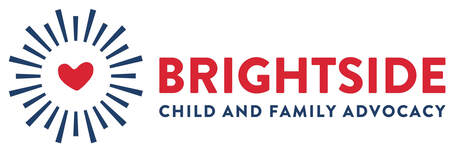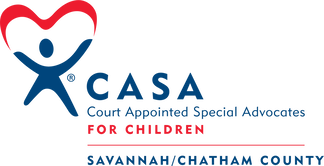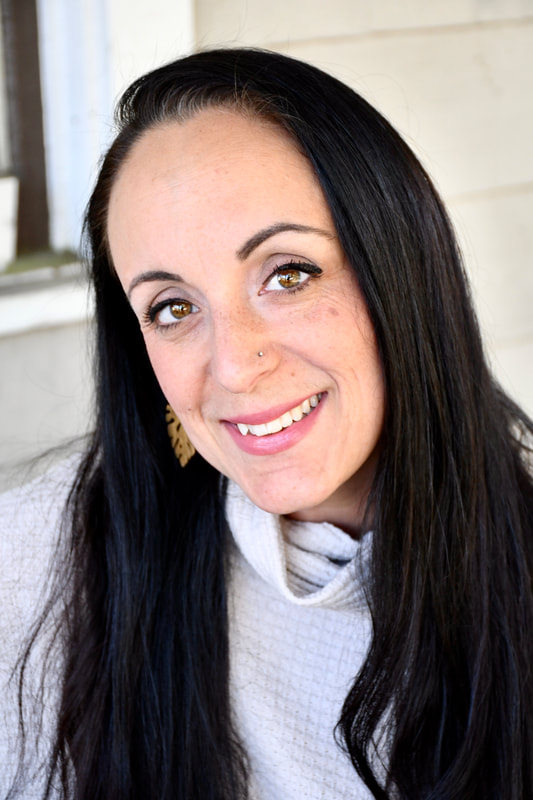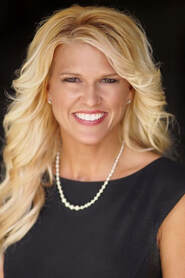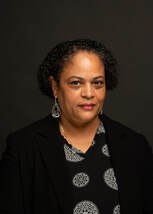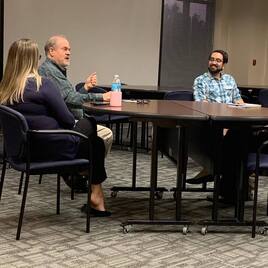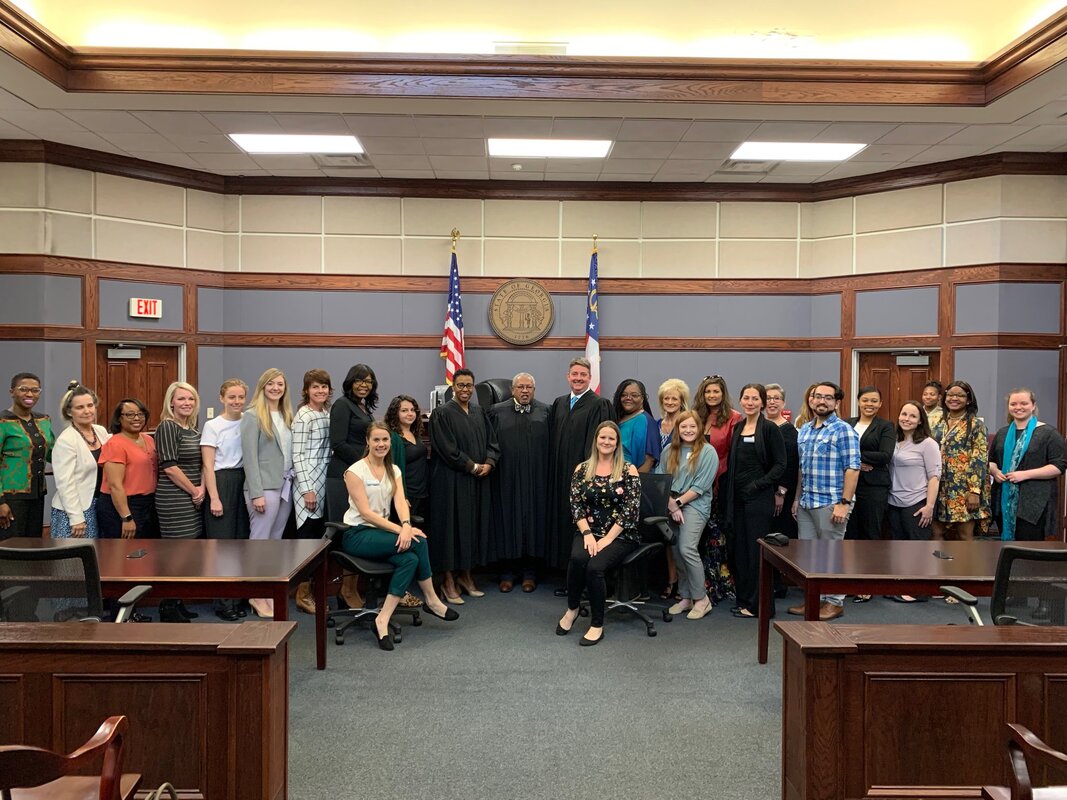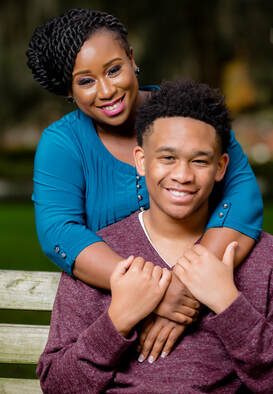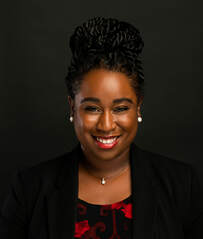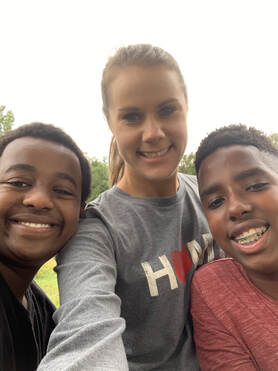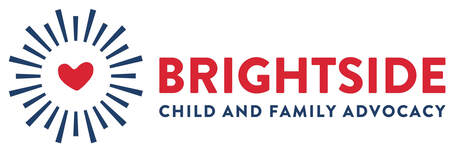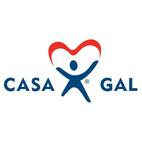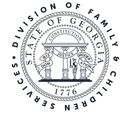|
My Expectations. When I imagined being a CASA, my dream was to form a meaningful relationship with a child in crisis who needed an encouraging friend. I would be someone who really knew them and be their support during a stressful time. I believed that I could make a difference, even if I didn't understand all aspects of the child welfare system. I would study, take notes, and learn. I would ensure that my child would get everything needed after being removed from the only home they have known. I had heard that "the system is broken" my whole life. I believed I found the perfect way to be a part of the solution and make a difference from the inside. I imagined deep conversations with my child as I told stories of my own childhood and how I enjoyed outings for ice cream on special days to celebrate. As I went through CASA training, I couldn't wait to meet the child I would get to know and love. I would earn their trust with tender smiles and soft, kind words full of hope. The Journey Begins. Then I was assigned my first case. I certainly never expected to be given a sibling group of three special needs, non-verbal children, one of whom we discovered later was nearly deaf. I thought, "Okay, how am I going to have deep conversations with these children and learn how they feel? How can I explain what is going on when they don't have language or cognitive ability to understand the situation?" What I had imagined was nowhere close to reality. I began to think of creative ways to spend non-verbal time with the children during our monthly visits. Stickers, paper crafts, picture books, and playing catch with a big bouncy ball took the place of heart-to-heart talks. I discovered that smiles and fist-bumps will transcend language barriers. Committed and Caring Adults. Since I could not speak with the children, I talked to their foster mom and other significant adults in the children's lives. This included their DFCS case manager, teachers, behavioral aids, interpreters, occupational and speech therapists, transporters, audiologists, psychologists, doctors, and dentists. Most of these adults will temporarily be in their lives, and some will be more consistent. In short, there are A LOT of new grownups in their lives, and A LOT of big changes since they came into care. I was committed to figuring it all out. Above all, I am grateful for the faithfulness of their foster mother. Taking good care of children with special needs 24/7 would be difficult for anyone, but she is fiercely dedicated to providing stability and consistency. They have developed and grown because of her enduring love and care. I know that sometimes foster children get moved around or even separated from their siblings, causing more trauma. However, "my" kids have been allowed the necessary time to heal and learn. Foster parents like her are the world's true heroes. She has shown me what it really means to love. I am determined to be consistent in the children's lives. As a CASA, I will have this case as long as they are in foster care. We may not have meaningful talks, but I believe they know I am on their side. And I've not given up on the hope of conversations yet! As they are being taught ASL, I am learning sign language myself. Now, my dreams include giving sign language explanations when they don't understand and, importantly, asking them directly about their needs and hopes. Only God knows what I will do with this new skill. These special children have taught me how to change my expectations when necessary. I have reaped benefits that I couldn't even imagine. I also have deep gratitude for the juvenile court judge in the children's case. He shows patience, compassion, and respect to the people in his courtroom. Even after hundreds of cases, he remembers the humanity of the people before him who are hurting. He rises above the fray to ensure justice for children who can't speak up for themselves. The wisdom and rightness of his decisions impress me. He shows me how powerful humble discernment can be. I'm Still Learning. My case is so complex, and there is heartache in the messiness. While the system isn't perfect, I have hope for my CASA kids. They have a capable, caring team of adults on their side. As a CASA, I am a part of the solution. I advocate for ways that can impact these children's lives for the better. I have learned that being their advocate is the most meaningful relationship I could have, even if we never get to have that heart-to-heart conversation.
5 Comments
My CASA Journey I am incredibly honored to volunteer for an organization which, as demonstrated by impressive data trends, positively impacts the lives of the children we serve who are in foster care due to abuse and neglect. I have been a CASA volunteer in the Savannah area for four years and have had the opportunity to work on 4 cases. My main focus has been with the Family Treatment Court (FTC) where I have worked with, and creating a trusting bond with, children who have come into care due to their parents’ substance abuse. Sadly, at times these children are born addicted to their mother’s drug of choice during her pregnancy. Once a parent chooses to participate with FTC, they are required to complete an 18-month program which is very involved and holds the parents accountable for the ultimate goal of full recovery for themselves, the wellbeing of their children and the opportunity for a permanent home for these children with their parents. I have had the privilege of seeing extreme transformation of these children and their parents. Watching the family prosper right before my eyes from who they were when their children came into care to how far they have come, making completely different choices, learning how to cope during life’s challenges and staying clean and sober. This is inspiring. I am so grateful to be a positive and loving piece of the puzzle supporting their children as the parents learn how to live a new and healthier lifestyle. My personal hope is the FTC program will end the cycle of substance abuse in these families so their children could become leaders in society. The Hard Part Some of the challenges I have faced as a CASA are when a case is closed and I am not able to stay in touch with the children - especially when I have built a strong, trusting relationship to the point they don’t want me to leave during a home visit! Another challenge is hearing of all the children who are in care and yet there is no CASA to serve every one of them and hear their stories. In one especially moving case, I was blessed to advocate for 3 siblings who have been in and out of care for over 4 years. I have finally seen permanency for these children all with the help of a great team!!!! It really takes a village of support to ensure the safety and permanency of children. How Helping Can Help You Too We could always use more help!!! Becoming a volunteer is a commitment as we strive to be a positive and constant advocate which makes a life changing impact for the children we serve. My parents taught as me as a teenager the importance of volunteering and finding an organization that you are passionate about. I personally love what CASA stands for. I am extremely passionate because, as a volunteer, I have the opportunity to shed a positive light during these dark times in these children’s lives who may not have had a chance if it wasn’t for the CASA program.
The Journey My journey with CASA began in 2007 shortly after I received my degree in Social Work. Next to raising my children, graduating from college as a non-traditional student was one of my greatest accomplishments and I was soon hired as a Case Manager for the Department of Family and Children Services (DFCS) in North Georgia. I quickly found my passion with working in foster care and adoptions. I learned the rewards of working with foster families, relatives and caring friends who provide safety and stability to a child during difficult circumstances. My experience taught me that the relationship between a CASA volunteer and a child suffering from trauma was part of a safe, stable healing process as the child will feel secure knowing that someone cares and “has their back.” When I relocated to the Savannah area a few years ago, there was no doubt in my mind that I would continue this journey as a CASA volunteer. I knew the complex emotional experiences that I was getting into. I knew policy and the court system. Yet, I felt drawn to support a child, especially an older child or teenager, in care. I signed up to be a CASA and after many weeks of classroom and courtroom trainings, I was ready. Swear-in day was pre-Covid, so many families were in the courtroom taking part in the happy occasion. My transition from working with CASA volunteers as a DFCS staff, to becoming a CASA volunteer myself was finally here. I looked up after signing my order in the courtroom and there was my Coordinator approaching me with a case. A newborn had just entered foster care. One could only imagine the look on my face as I thought about the teenager who would be missing out on my presence in their life. Even though, I knew my purpose was to advocate for all children regardless of age, race or culture. I accepted the case and 3 plus years later, a sibling was added to the case. Today, the children are together in a safe, stable and loving home awaiting adoption. In May 2021, I was honored to transition from Volunteer Advocate to staff with Savannah CASA. Recently, I discussed my experience of getting a case that I didn’t expect with a new volunteer. I talked about the privilege of watching not one, but two newborn siblings, both with special needs, multiple health problems and developmental issues, grow and develop into healthy toddlers as a result of the stability, safety and love received from their caregivers and community. I am enlightened by the joy I hear in the voices of the relatives and foster parents who want nothing more than to talk about the children’s progress, the familial bonds and how much their life has changed for the better. Rarely, do I hear about the difficult times, hard moments, numerous doctor’s appointments and sleepless nights. The emotional bonding that resulted keeping the siblings together outweighed these many challenges. What I Have Learned Over the years, I have worked with numerous CASA volunteers on difficult cases of abuse and neglect. With the countless hours in the courtroom, writing reports, tracking down case workers, counselors, teachers, and providers, while being an emotional support for children who are traumatized and marginalized, I realize that CASA volunteers are some of the most selfless, dedicated and compassionate people I know. There are days of sadness, frustration and disappointment. However, I believe that many, like myself, would not change the experience of being a Court Appointed Child Advocate for anything. Without my journey, I would not have crossed paths with individuals from widely diverse backgrounds who have stepped forward to help a child. I would not have had the privilege of, first becoming a CASA volunteer and then, expanding my opportunity to contribute by joining this amazing team.
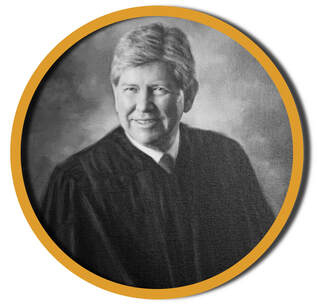 The Honorable John Beam The Honorable John Beam Our History In 1976, Superior Court Judge David Soukup of Seattle, Washington, observed a recurring problem in the courtroom. He recognized that there was too little information available to base life-changing decisions about the safety, permanency and well-being of children. To address this problem, he raised funds to recruit and train community volunteers to speak on behalf of children in court. In 1977, a CASA pilot program was formed based on Judge Soukup’s idea. In 1982, the National CASA/GAL Association for Children was established to direct CASA’s emerging national presence. CASA reached Georgia in 1988, when Georgia CASA began and established two pilot programs. It didn’t take long for the Chatham County’s Juvenile Court Judge, The Honorable John Beam, to realize that our community would greatly benefit from this program. Judge Beam wasted no time in establishing a committee and starting Savannah/Chatham County CASA. In 1991, Savannah/Chatham CASA was formed. In 1993, it officially became its own 501(c)3 and soon after hired its first official executive director, Rebecca Zarada (now Lentz). Rebecca, her six successors, and the many staff members worked tirelessly to ensure the program had the support and investment necessary to train community volunteers to advocate for the children who experienced abuse and neglect in our community. Since 1991, more than 2,000 community volunteers have advocated for the best interests of our community’s children. 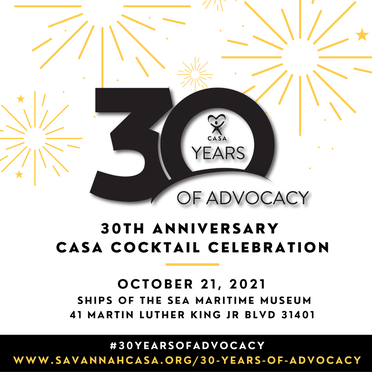 Celebrating 30 Years In honor of our anniversary, we sought to identify 10 individuals who contributed to the success of the organization throughout the last 30 years. This was no easy task. I’ve spent the last month talking to past staff, board members, and volunteers to select the past board members that not only contributed their time, talent, and resources but also those who lead the organization during some of our most challenging times. We are excited to honor these 10 individuals on Thursday, October 21st at the Ships of the Sea Maritime Museum. Our selected honorees contributed to the growth and success of Savannah CASA. However, there are so many more who served as board members, CASA volunteers, and staff that also deserve recognition. We are working hard to compile that list and invite each and every one of them to our celebration so that we may honor them as well. Unfortunately, access to older files are limited. We need help to ensure all involved in the history of our organization are present at our event. Please reach out to me at [email protected] if you have current contact information of any past board members, staff, or supporters. Last but not certainly not least, Savannah CASA would not exist without our volunteers. They are at the heart of our mission. This is why in addition to our anniversary celebration, we will host a special breakfast celebration focused solely on their contributions on Tuesday, November 2nd. This event will be closed to the public and free for all current CASA volunteers and their guests. We are excited to announce that Judge LeRoy Burke will be our keynote speaker at our breakfast. ABOUT THE AUTHOR - Kate Blair
When Opportunity Knocks... This summer, I had the opportunity to take part in the Shepherd Internship program, which is designed to pair college students with non-profit organizations to educate them as to the complexities of poverty. In my initial interviews to determine my placement, I expressed that I wanted to be doing something with children, as I have always felt most fulfilled when I am helping to better their lives. When I learned that I was matched with CASA, I was elated. With just a minimal understanding of what a CASA was, I knew that my summer was going to be special. Through friends and colleagues, I learned that CASA staff are leaders in their community with an intrinsic motivation to aid and support children living in foster care. I found this mission honorable and inspiring and felt privileged to have this chance. Even from miles away on our Zoom calls, I was inspired by those at Savannah, CASA. Their passion for, and commitment to, children radiated through the computer screen. They speak with concern and act with care. Advocacy Outside of the Courtroom From my very first day, CASA staff demonstrated that advocating for a child is multi-faceted. While advocacy is central to the work, advocating for children is not just speaking on their behalf in a courtroom - there are so many more ways to support a child in foster care. For example, the mega fundraiser, “Dancing with Savannah Stars” which assured that there are resources to do the work. Likewise, agency-wide discussions and pandemic-era Zoom “coffee hours” fostered an environment where individuals were encouraged to learn from each other’s personal and professional perspectives. In addition, CASA has an extremely vibrant social media presence which connects the wider community to inspire others to include them in CASA’s mission. An Unforgettable Experience There are many direct and indirect service components to non-profit work and, each day, colleagues at Savannah CASA join together to achieve support and stability for the children. As a young professional, I am thankful for my summer’s opportunity to learn from these inspiring - (and inspired!) – colleagues. I will continue to use their lessons in my own life’s work. I will never forget this experience as my heart is forever touched by these summer colleagues who devote talent and time to the success of children in foster care. ABOUT THE AUTHOR - Alaina Ratanapool
Shutdown! We Switch to Online Like everyone else, the pandemic drove us out of our brick and mortar classrooms and into the virtual world. For the last year, I’ve facilitated our CASA Pre-Service Training with a completely new way of learning core content and interacting as a group. Initially, this was a challenging and confusing endeavor, but ultimately, it proved to be just the kind of engaging social interaction many of us were needing at the time. Similar to me, many of the trainees were working from home. We looked forward to our time together on Zoom each week. The online training provided the flexibility to help us recruit volunteers who may not have otherwise been able to participate due to their work schedules, lack of child care, health concerns, etc. Checking in with each other in “class” and interacting over the Internet for homework helped us maintain our sense of belonging to a community. In fact, our very first self-proclaimed “COVID Class” created a private group on Facebook to stay connected! My story wouldn’t be complete if I didn’t mention that switching to online training did block some older, deeply experienced participants. With regret, I recall a woman with a Ph.D. in Education coupled with decades of experience working in the NYC school system and now newly retired to Savannah. She felt uncomfortable with the online process and, sadly, we lost her contribution as a future CASA.
ABOUT THE AUTHOR - ERIC HORNFELD
Decisions, Decisions, Decisions. My choice to join the CASA team last November was much like many decisions in my adult life - overanalyzed but well calculated. Up until this point in my career, I have always worked in healthcare as a design and marketing professional. When thinking about why this position as CASA’s Communications and Development Manager was right for me, I had to think outside of my regular 9 to 5 experiences.
Jennifer with the Savannah CASA team (left) and with single moms at a Savannah Bananas game (right). This New Journey. I am still processing the experience of shifting my full-time focus to something closer to my after-hours passion of helping families in need. Though it has not been the easiest shift due to the pandemic and various learning curves, I have been able to gain a wealth of knowledge. Getting to know co-workers and a new work culture over Zoom plus managing CASA’s largest fundraiser from home has been a lot to process. Whether on Zoom or in person, the zeal that our team has for child advocacy is undeniable. I am extremely grateful to have the opportunity to use my years of design and marketing experience to highlight the great work that Savannah CASA does every day in the lives of children and families. Our team is so passionate and their enthusiasm cultivates a culture that is refreshing for me. Beyond the culture, my new position gives me fulfillment on so many levels outside of my professional goals. It makes me happy to know that our collective efforts are really making a difference in the world and in the lives of children. We all have a purpose here on earth and being able to see that purpose in action is one of life’s greatest gifts. I am glad that I chose CASA and I hope that my work will help us impact as many lives as possible. ABOUT THE AUTHOR - Jennifer T. GRaham
Acknowledging the Loss of First FamiliesMother’s Day was this past Sunday. My boys were incredibly sweet to me, of course. They bought me a gift and went out of their way to make sure I didn’t have any work around the house. I felt deeply loved. But despite the joy of the day, each year I carry a profound loss within me. It’s not my own loss but the loss experienced by my sons and their first mothers. I think writer and adoptive parent, Jody Landers, captures it best, “A child born to another woman calls me mom. The depth of the tragedy and the magnitude of the privilege are not lost on me.” When this holiday comes around, I find myself reflecting on the loss carried by those I love so deeply. Complicated Reasons for Loss. As an adoptive family, we are often asked about our sons’ adoption stories. We won’t share those with anyone as they are theirs alone to share. However, like all adoptions, theirs was a result of loss - the loss of family, connection, and history. All adoption stories are complicated and as unique as the people involved. Adoptions can be the result of death, strained relationships, generational trauma, substance use disorder, mental illness and, sadly, they may result from broken government systems, trafficking, racism, and poverty. One thing I know, adoption should always be the last option. Every child should be given every chance to be raised by their biological family. When people talk about adoption, the adoptive parents are typically celebrated. We say things like, “Aren’t they wonderful? What a beautiful gift they gave to those children!” This comes from a good place, of course, but it misses a core truth that the child and their first family have experienced profound loss. In fact, society often speaks poorly of first families – making generalized assumptions about poor choices they might have made that resulted in their children entering the child welfare systems. But as our CASA volunteers and staff can attest – it is never as black and white as that. Each family’s story is complicated and rooted in trauma. In our experience, parents love their children and do not want to cause harm to them.
ABOUT THE AUTHOR - Kate Blair
Who Is the Typical CASA Volunteer?For most of a year, I’ve settled into a niche as an Interviewer for CASA. Having spoken with 70+ volunteer applicants to date, I enter into each (Zoom) interview with a mixture of eagerness and curiosity. Who will I meet? What life journey has led a person to this moment? The profiles that emerge of a CASA applicant have both surprised and delighted me. I am aware that my views reflect my own journey. With this caveat, I believe I’ve discerned “patterns” that may answer the question, who is the typical volunteer? To be a CASA Volunteer, this special individual will have a blend of traits. On one hand, the applicant will display an aptitude (or tolerance!) to do research and to transform data into monthly reporting and, eventually, a document to be reviewed by a judge. They will act as an Advocate, one who tracks school progress, healthcare and multiple social services to assure that these align for the child’s best interest. On the other hand, this same person will speak from a reservoir of emotional intelligence. They will have the “heart” to be a supportive presence for a child during highs and lows of family disruption and show up, when needed, with a kind word. To illustrate my point, during the first weeks of January, CASA staff were preparing for the initial volunteer training of the year. Following a pause for the holidays, my colleague, Teresa, and I were working full-steam ahead, juggling a flurry of applications to fill up the virtual classroom. Teresa hit the phones and coordinated the interview schedules. She then stepped back, I stepped forward, ready to log in and meet whoever shows up. This snapshot in time reinforced my growing perception of patterns – that the volunteer applicant will certainly display “heart” and, in addition, will likely have travelled along one of these life journeys. As I log in, who will I meet? The Woman/Man in Uniform: As Zoom opens up, I immediately recognize the no-nonsense demeanor of the current (or newly retired) military staff. They are direct in speech, and answer the standard CASA interview questions with a clear-eyed approach as how to get a task done. They have moved around a lot but expect to be in Savannah “for a while”. Elevated above all, however, is a deep desire to connect with, and contribute to, their new community. The Young Adult: This applicant always surprises me. The Young Adult is not much passed their 21st birthday, but has “been waiting all my life” for the opportunity to be a CASA. This young person readily expresses views on social justice, likely comes from a large family and speaks warmly about caring for, and supporting, another. They possess a mature outlook on life that is remarkably atypical for one so young. The Educator: Our Educator is an uber-skilled professional with multiple layers of knowledge on child development and family dynamics. In addition, the years of instruction have trained them to be deft coach, able to nudge two steps forward after someone falls one step back during hard learning processes for both children and adults alike. The Educator is a devoted believer that to enhance any community, all children must have a shot to reach their potential. The Survivor: To this day, I am astonished at the CASA applicant who has passed through early traumatic experiences to emerge with almost supernatural strength and insight. During our discussion, the Survivor will repeatedly reference their process of recovery from trauma and how horrid experiences led to crucial character-building. Reflecting back in time, the Survivor is resolute that they don’t want a child to ever be alone, without a voice, during a time of fear and disorientation. The Community Builder: At first, this applicant appears demure. They may work in an office, run a small business or be a homebody with grown children. Their life is not quiet, yet the Community Builder describes feeling compelled “to move heaven and earth” for a vulnerable child. They are almost gleeful that, after years of hoping to be a CASA, a moment in their busy life has finally arrived. Motivation is framed as a big picture – being a CASA helps build our beloved community by raising up the most vulnerable among us. Is There a Typical CASA volunteer? To my surprise, yes and no. Yes, because each person, without exception, speaks with “heart”. This singular trait doesn’t vary and connects all of us at CASA with a shared motivation to help a vulnerable child. Broadly speaking, there are also “patterns” of backgrounds. If the CASA Woman in Uniform met the CASA Survivor on River Street, would they recognize each other? Probably not. But if they learn that they are both CASAs, a world of commonality opens up. This moment begins to answer, who is the “typical” volunteer? They are our fellow neighbor, whose life journey compels them to lend a hand, and heart, to a child in foster care.
An Unexpected gift for a casa internI began my internship with Savannah CASA the first week of January. At the time, I was completely and utterly unsure of the field I was entering as an intern. I did not have much knowledge of what CASA did for the community, nor of the myriad of situations that a foster child may experience. I did, though, have a lot of compassion to those in need. I initially thought that my experiences, volunteer hours, and educational training would be sufficient to accomplish my goals at CASA. I was ready to dedicate myself to hard work and long hours of helping others cope with their personal situations. I believed that the men, women, and children involved in the different specialties of CASA would value me due to my life’s journey. I never expected I would need them too. The Unfolding Lesson During my second week of interning, I attended the Family Treatment Court (FTC). FTC is a parental skills and rehabilitation program for young parents whose children entered the foster care system due to their substance use disorder. When I observed FTC for the first time, I marveled at how each parent was open and vulnerable. I felt proud of them for their struggle to improve their lives. I cried “happy tears” to see how hard they worked to get their lives under control to be reunited with their children. I know that personal biases have blocked my understanding of substance use due to growing up in a home where my mom was addicted to drugs. For years, I’ve known I was affected. Due to our tumultuous relationship, I know that my heart was often closed to expressing any form of vulnerability. Sitting in FTC and admiring the young parents’ efforts to correct their behavior, I wondered to myself why in the last fifteen years did I never try to understand my mother’s own struggles. As a CASA Intern, a wife, and as a mother myself, I love praising the FTC parents for their accomplishments, no matter how small of a step they achieve. My heart was warmed to see them smile. And I was struck with a realization - if I could encourage strangers to keep moving forward with their lives, why couldn’t I do the same for my own mother? And This I Learned... After a month at CASA, I reached out to my mom. I felt odd abandoning my hiding place of comfort and safety, but I wanted to tell my mom that she deserved to be forgiven and that I was very sorry it took me so long. My CASA experience helped me see a personal struggle that I had inside but didn’t realize was even there. Throughout my adult life, I was looking for something that would grant me satisfaction and joy, and most of all give me a sense of purpose. CASA helped me open up. The men, women, and children CASA serves deserve applause for their efforts and determination. Despite the difficult struggles with their destructive substance use, they strive to persevere, to not give up, and most importantly to decide that their lives can be meaningful again. CASA helps change lives. I have found that helping other people is one way to be truly happy. I love CASA because positive things happen all the time, even unexpectedly. Learn more about how to talk about substance use disorder. ABOUT THE AUTHOR - TIFFANY STACYTiffany Stacy is an intern for Savannah/Chatham CASA, and is a Georgia native from Columbus. She is an Army spouse and is currently attending Troy University online pursing a BS in Social Work and is set to graduate this Spring. Tiffany plans to pursue an Advanced-Standing and Accelerated Master of Social Work at Louisiana State University this Fall. She and her husband, Nick, are parents of two rambunctious children, Talia and Mason, and have three fur-babies, Beau, Kermie, and Nana.
|
